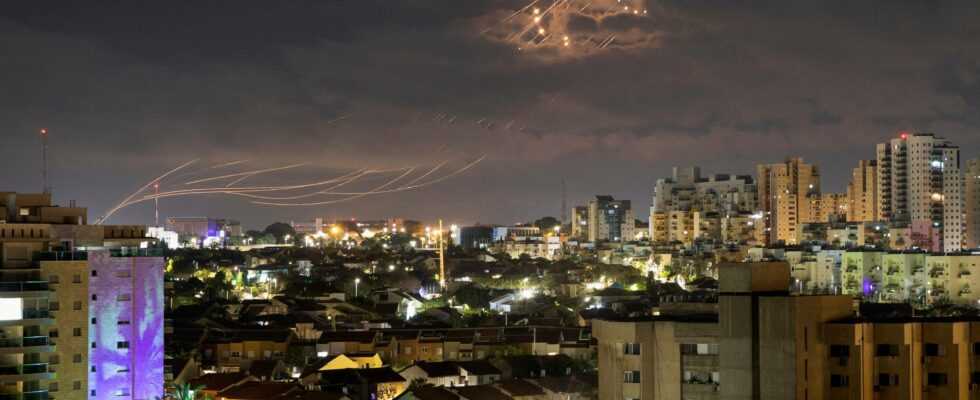After a new rocket attack, Israel announced that it wanted to ban Palestinians from Gaza from working in the country from Sunday.
Israel announced on Saturday its intention to ban Palestinians from Gaza from working on its territory from Sunday, a retaliatory measure decided after the firing of new rockets from the enclave.
This decision to close the Erez crossing, the only one for the movement of people between the Gaza Strip and Israeli territory, will affect thousands of Palestinians in the poor enclave subjected to an Israeli blockade for more than 15 years.
Apart from the Rafah crossing point between the south of this micro-territory of approximately 2.3 million inhabitants and Egypt, Israel controls all entries and exits from the enclave, both of goods and of people. .
“After rocket fire (Friday), Gaza traders and workers will not be allowed to cross the Erez crossing on Sunday. The decision to reopen it will be taken after an assessment of the security situation,” a statement said. Cogat, the body of the Israeli Ministry of Defense which oversees civilian activities in the Palestinian Territories.
Friday evening and Saturday, three rockets were launched from the Gaza Strip bordering southern Israel and controlled by the Islamists of Hamas, towards Israeli territory, without causing any casualties.
Four attacks carried out in Israel between March 22 and April 7
Since Monday, several rockets have been fired prompting Israeli air raids against the Gaza Strip. They caused no casualties and most of the projectiles were intercepted by the Israeli missile shield.
These rocket attacks are the largest since the deadly 11-day war between Hamas and the Israeli army in May 2021 after clashes between Israeli police and Palestinians in East Jerusalem which left hundreds of Palestinians injured.
The new escalation came after four attacks in Israel between March 22 and April 7, which left a total of 14 dead. Two of the attacks were perpetrated in the metropolis of Tel Aviv by Palestinians from the West Bank, a Palestinian territory occupied by Israel since 1967.
The Israeli army carried out several operations in the West Bank after these attacks, some of them deadly.
In this context and in the middle of the Muslim holy month of Ramadan, clashes have been opposing demonstrators and Palestinian faithful to Israeli forces for a week on the esplanade of the Mosques in East Jerusalem, the Palestinian part occupied by Israel.
The clashes left more than 250 Palestinians injured and the Israeli authorities who control access to the esplanade closed the crossing points allowing Palestinians from the West Bank to travel to Jerusalem.
Endemic unemployment in Gaza
Friday before the rocket fire, Hamas organized a major demonstration in the enclave in solidarity with the Palestinians of East Jerusalem where clashes on the esplanade of the Mosques made the same day about fifty wounded.
The third Friday of the Muslim holy month of Ramadan coincided with the end of the Passover celebrations, the Jewish Passover.
The presence on the esplanade during Ramadan of many Jews, authorized to visit the place at specific times without praying there according to the status quo in force, and the deployment of police forces were widely perceived by Palestinians and several countries. of the region as a gesture of “provocation”.
The Palestinian enclave suffers from a poverty rate of around 60% and endemic unemployment hovering around 50%.
At the end of March, Israel announced that it would increase the number of work permits granted to Palestinians in Gaza from 12,000 to 20,000.
The latter work in Israel, particularly in the construction and agricultural sectors, where they receive salaries five times higher than what they would earn in Gaza.
